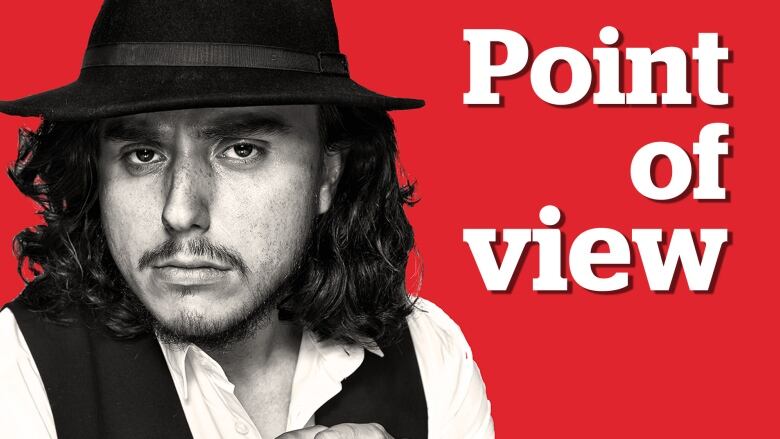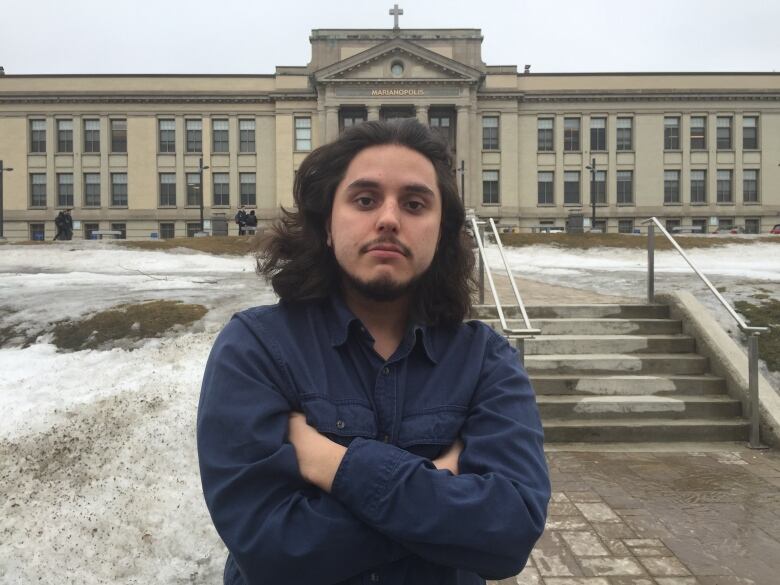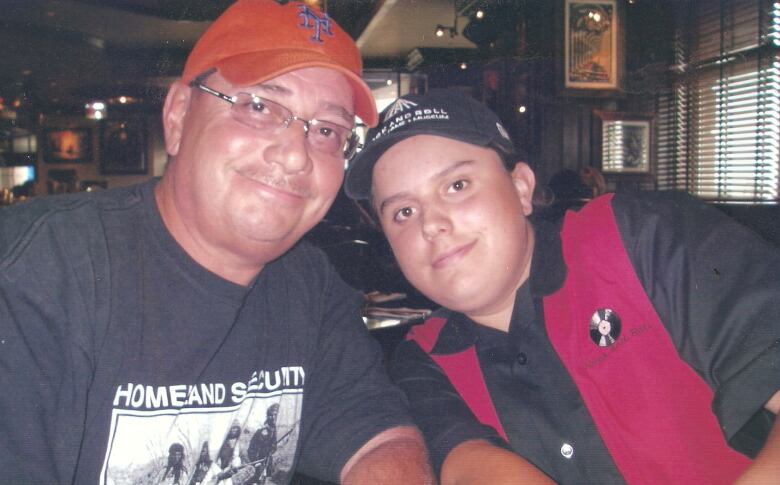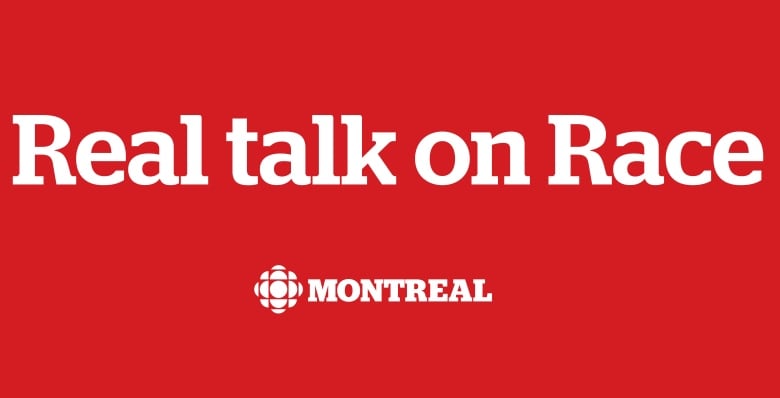Feeling like a stranger in your own backyard
Gage Diabo's experience as a First Nations student in a Montreal CEGEP made him want to be invisible

As part of our series Real Talk on Race, CBC Montreal asked 10 people to share their personal stories about race. These stories are in their own words. Share yours with usonFacebook,Twitterandwebquebec@cbc.ca.
In all my time as a young Mohawk man in the big city, I've found that you're not only safer, but that you get to overhear the most interesting things when others forget that you're there and you become, as Ralph Ellison put it, invisible.
Having grown up in the insular environment of my reserve and the surrounding communities, where home could always be measured in terms of how many Indians you might bump into during your daily travels, it was not until I began attending school atMarianopolisCollege inWestmountthat I got my first real taste of the city.

I remember an English class, where our professor was introducing us to postcolonial theory and, naturally, the topic of First Nations entered into the discussion.
As was my tendency at the time, I said nothing and instead chose to listen to what illuminating and sometimes entertaining things the others had to say.
At a certain point, a girl whom I recognized as a fellow honours student, one whose self-confidence and eloquence I often envied, raised her hand.
Once called upon to speak, she said something along these lines:"I don't understand what the Natives have to complain about. I mean, they have their tax exemption and their cigarette businesses. Clearly, they're doing well enough for themselves. Why can't they just get over the past and move on, like the rest of us?"
'It hurt me'
I don't recall if I was more shocked or fascinated.
This wasn't like the angry men who would get riled up and taunt us with war whoops and shouts of "Sauvage!" at hockey games, nor was it like John Wayne shooting a dead Comanche's eyes out in The Searchers.
- P.O.V.: Read RachelZellar'stribute to three mentors who helped her thrive as a woman of colour
- Read all the P.O.V. stories in the series
This was an enlightened youth, the product of a liberal education system, and an honour student no less. This was somebody who, for all of my complex feelings, I respected.
How could somebody who generally seemed so knowledgeable settle for such simple, misguided conclusions about my people about me? My father, after all, made his modest living in the same "cigarette business."
And that's to say nothing of the long, sad history of colonialist policy by which we Natives became stuck with our fabled tax-exempt status, which came at theexpense of the complete loss of our sovereignty, lands, and traditional ways of being.

But hey, we were "doing well enough for ourselves," weren't we?
Yes, it hurt. It hurt me to the point where I couldn't muster up the strength to speak up to her. It hurt me to the point where, from that day on, I felt safer by retreating deeper and deeper into invisibility.
If not even the brightest minds of my generation could find it in themselves to understand indigenous culture, perhaps, I decided, I would be better off hiding it away altogether.
It would be years before I could come out of that space.
It hurt me to the point where, from that day on, I felt safer by retreating deeper and deeper into invisibility.
Would my classmate have voiced these opinions had she known that there was a real-life Indian in the room? I'd like to imagine not.
Better yet, I'd like to imagine that, instead of falling back on the old mantra of "Why don't you Indians get over it?" she'd have thought to reach out and ask somebody, not necessarily me, about what it's actually like to be First Nations in Canada.
About what it's like to be consigned to a legal category under the Indian Act and not recognized as a vibrant, living culture.

Talk to any First Nations person and you'll see that strength and, yes, that humour come through.
All it takes to get people talking is an honest question instead of a veiled assumption.
Picture that. How refreshing would it be if, instead of leveling accusations back and forth, we could open up a dialogue and embrace what each other has to say?
Contrary to what you may see in the old movies, we First Nations love to sit and talk, but that love for sharing depends upon a mutual willingness to listen and understand. If we can accomplish that, I'm sure we'd have a lot to teach each other.
- Share your thoughts on this story on the CBC MontrealFacebookpage
- Read all of the Point of View pieces in the Real Talk on Race series
GageK.Diabois a Mohawk from Kahnawake. After dabbling in amateur filmmaking throughout his youth, he made the transition to the professional sphere as a third assistant director on the set of APTN's fiction television series,Mohawk Girls.He is also an aspiring novelist, having written three unpublished novels by the age of 20. As a classically-trained pianist and stage director, he has worked extensively in the local music and performing arts community. He will be beginning his MA in First Peoples Literatures at Concordia University in the fall.












_(720p).jpg)


 OFFICIAL HD MUSIC VIDEO.jpg)
.jpg)



























































































